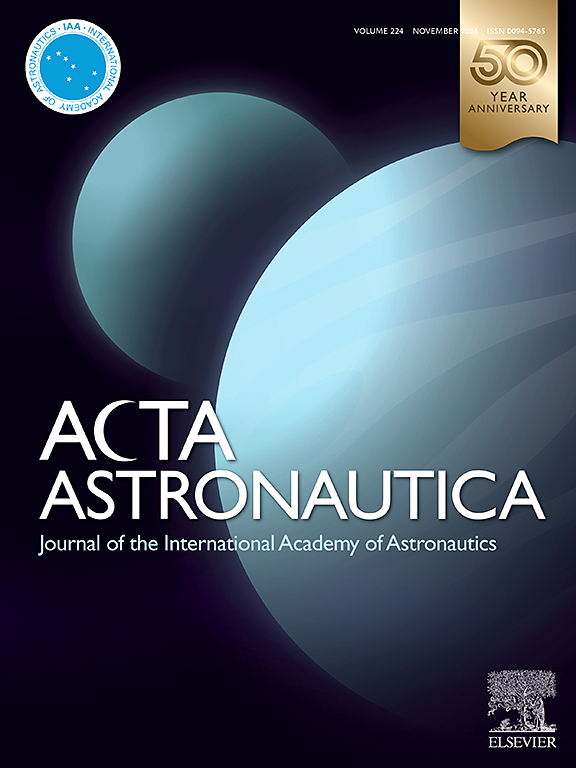EPOS-Lid:用于非合作交会姿态估计的激光雷达基准数据集
IF 3.4
2区 物理与天体物理
Q1 ENGINEERING, AEROSPACE
引用次数: 0
摘要
越来越多地研究激光雷达传感器用于空间交会应用,特别是用于在轨服务或主动清除碎片任务。利用其主动测量原理,它们提供精确的3D点云,从而实现精确的姿态估计。虽然在理想条件下生成模拟激光雷达数据相对简单,但真实的激光雷达点云可能呈现高水平的噪声和反射。需要有代表性的激光雷达数据来训练和测试非合作空间交会场景下的姿态估计方法。这项工作介绍了EPOS-Lid,这是一个公开可用的激光雷达基准数据集。它包括一个用于训练姿态估计方法的合成数据集,以及在欧洲接近操作模拟器(EPOS)收集的真实激光雷达点云。此外,通过对基准方法的评估,证明了数据集如何用于训练和测试姿态初始化和姿态跟踪方法。本文章由计算机程序翻译,如有差异,请以英文原文为准。
EPOS-Lid: Lidar benchmark dataset for pose estimation during non-cooperative rendezvous
Lidar sensors are increasingly studied for space rendezvous applications, in particular for on-orbit servicing or active debris removal missions. With their active measurement principle, they provide accurate 3D point clouds which enable precise pose estimation. While simulated lidar data is relatively simple to generate under ideal conditions, real lidar point clouds can present high levels of noise and reflections. There is the need for representative lidar data to train and test pose estimation methods for non-cooperative space rendezvous scenarios. This work introduces EPOS-Lid, an openly available lidar benchmark dataset for this task. It comprises a synthetic dataset for training pose estimation methods, and real lidar point clouds collected at the European Proximity Operations Simulator (EPOS). Further, it is demonstrated with evaluation of benchmark methods how the datasets can be used for training and testing pose initialization and pose tracking methods.
求助全文
通过发布文献求助,成功后即可免费获取论文全文。
去求助
来源期刊

Acta Astronautica
工程技术-工程:宇航
CiteScore
7.20
自引率
22.90%
发文量
599
审稿时长
53 days
期刊介绍:
Acta Astronautica is sponsored by the International Academy of Astronautics. Content is based on original contributions in all fields of basic, engineering, life and social space sciences and of space technology related to:
The peaceful scientific exploration of space,
Its exploitation for human welfare and progress,
Conception, design, development and operation of space-borne and Earth-based systems,
In addition to regular issues, the journal publishes selected proceedings of the annual International Astronautical Congress (IAC), transactions of the IAA and special issues on topics of current interest, such as microgravity, space station technology, geostationary orbits, and space economics. Other subject areas include satellite technology, space transportation and communications, space energy, power and propulsion, astrodynamics, extraterrestrial intelligence and Earth observations.
 求助内容:
求助内容: 应助结果提醒方式:
应助结果提醒方式:


